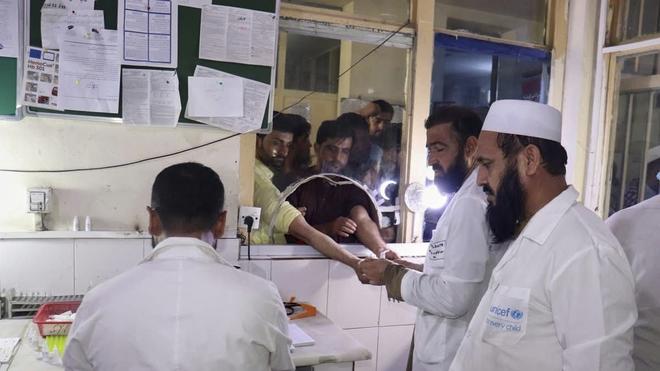Kabul reels under destruction as rescue operations continue amid multiple aftershocks
Kabul: A powerful earthquake followed by several aftershocks has devastated large parts of Afghanistan, leaving at least 800 people dead and more than 2,500 injured. The tremors, which struck late last night, were among the strongest recorded in the region in recent years, sending panic across cities and rural areas alike.
According to local authorities, the epicenter was located in a mountainous region near the country’s western provinces, but the shocks were felt as far away as Kabul and neighboring countries. Multiple aftershocks, some of them strong, worsened the destruction and hampered rescue efforts.
Homes, schools, and government buildings have been reduced to rubble, leaving thousands homeless and scrambling for safety. Emergency teams and volunteers are digging through debris with limited resources in a race against time to find survivors. Officials fear the death toll may rise further as many remain trapped under collapsed structures.
The Afghan government has declared a state of emergency and appealed for urgent international assistance. “This is an unprecedented disaster. We need immediate aid—rescue teams, medical supplies, and shelter for those displaced,” a senior official said. Hospitals in the affected regions are overwhelmed, with doctors struggling to treat the influx of injured victims amid shortages of essential medicines and equipment.
International organizations and neighboring countries have pledged support. Humanitarian agencies are preparing to send relief supplies, while discussions are underway to establish air corridors for emergency aid. However, damaged roads and unstable terrain pose significant challenges to relief operations.
Experts say the earthquake, combined with fragile infrastructure and densely populated rural settlements, has amplified the scale of destruction. The country, already grappling with economic hardship and political instability, now faces a massive humanitarian crisis.
The United Nations has called for a coordinated global response, warning that thousands of families need immediate shelter, food, and medical assistance. Meanwhile, residents continue to feel aftershocks, fueling fear of further collapses in already weakened structures.

